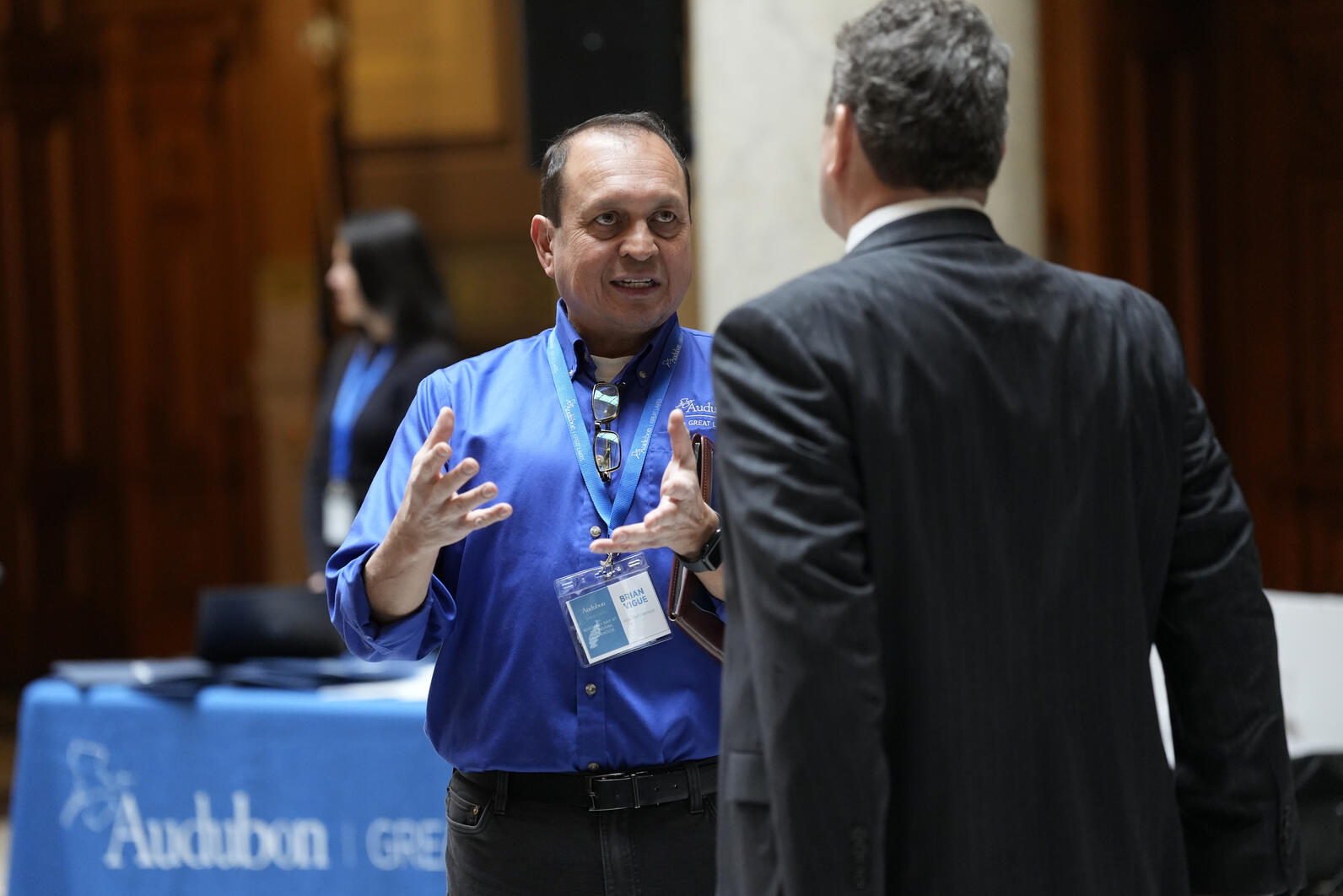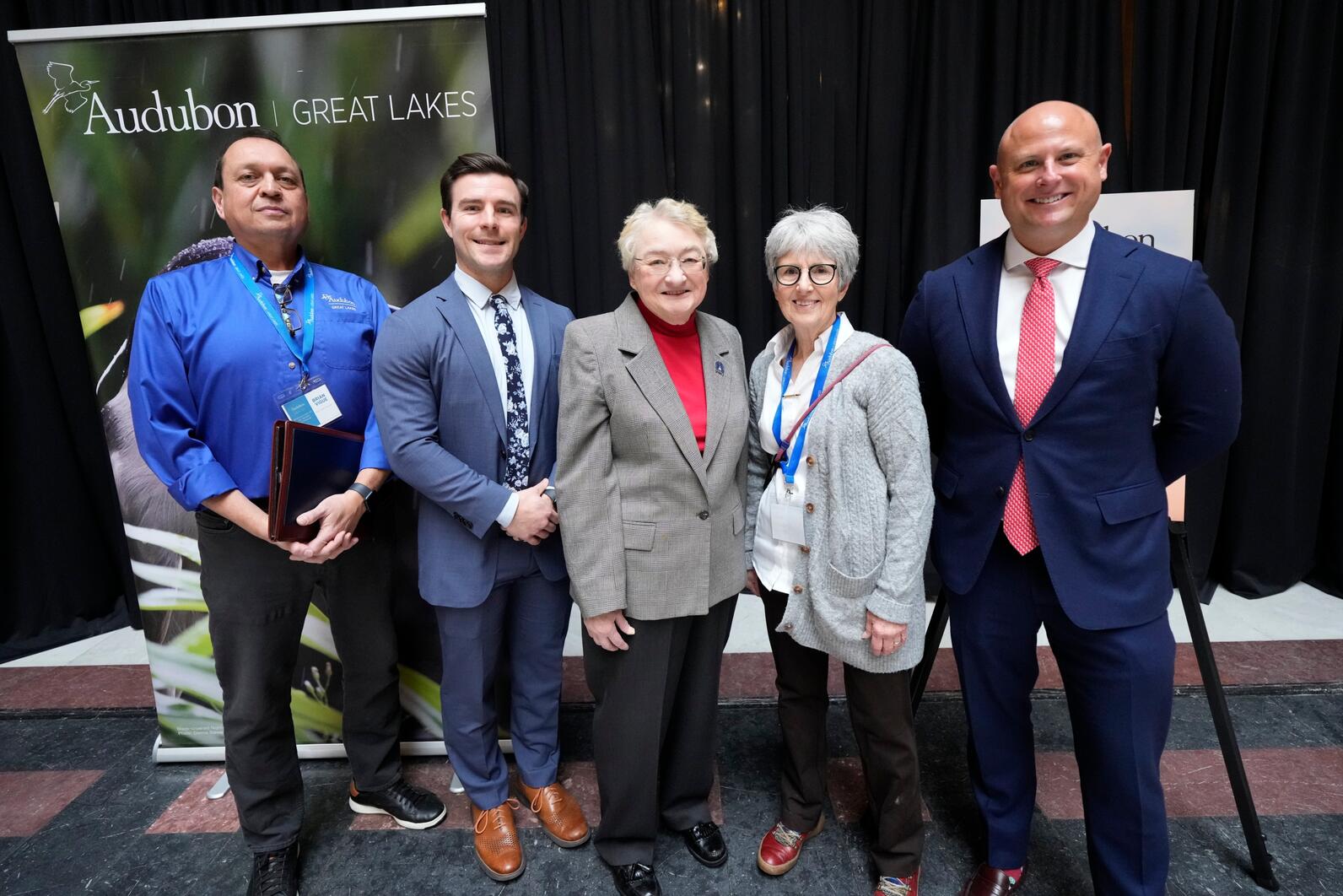INDIANAPOLIS (January 22, 2024) – Today, Audubon held Audubon Great Lakes Advocacy Day at the Indiana Statehouse. Concerned Audubon members, experts and Indiana residents from across the state gathered to urge lawmakers to protect Indiana wetlands.
More than 20 Audubon members from across the state met with over 32 Indiana lawmakers to advocate for strong wetlands protections, sharing the importance that these natural areas provide to birds and other wildlife.
“Whether large or small, Indiana’s hardworking wetlands provide habitat to birds and other wildlife and store a tremendous amount of water to protect communities from flooding,” said Policy Director of Freshwater at Audubon Great Lakes, Brian Vigue. “The Supreme Court’s recent decision in Sackett v. EPA stripped most of Indiana’s wetlands of federal protections. In this critical hour, we need our lawmakers to implement state-level protections for wetlands, not run the risk of weakening the protections already in place.”

Two years ago, the Indiana state legislature rolled back state wetlands protections through SB 389. Since then, more than 260 wetland acres have been destroyed, according to a report that looks at Indiana Department of Environmental Management (IDEM) data. Last week, the Indiana legislature introduced HB 1383. As written, it would further reduce the number of wetlands that are protected in Indiana by changing the definition of Class III wetlands, the most protected class.
State Sen. Sue Glick (IN-R- LaGrange), attended the event to speak to the importance of protecting Indiana wildlife and wetlands.
“Indiana’s wetlands have taken hundreds of years to form, and replacing them will be costly,” said Sen. Glick. “Protecting wetlands, used by both Hoosiers and Indiana wildlife, just makes sense. Audubon’s conservation efforts and presence at the statehouse send the critical message of how important these ecosystems are.”

Indiana has lost 85 percent of its historic wetlands, according to the Indiana Department of Natural Resources. Over the past half century, human activity has significantly degraded the wetland habitats that birds like the American Bittern depend on. As a result, many marsh bird populations are in steep decline.
Polling released by Audubon Great Lakes in 2023 found that 94 percent of Indiana voters believe state leaders should either strengthen or maintain Indiana’s current wetlands protections.
“One of my favorite wetlands to go birding is smack in the middle of a small business park on the Northwest side of Indianapolis,” said Communications and Outreach Manager for Indiana Audubon Society and Advocacy Day participant, Whitney Yoerger. “Secretive marsh birds depend on these wetlands for their survival. It’s important for me to share with my representatives the unique value that our wetlands bring to birds and our communities.”
Audubon hopes the gathering at the statehouse makes progress in the effort to protect wetlands.
“We want to thank Sen. Glick, and Audubon members from across the state, for being here today to speak up for Indiana’s natural resources and the wildlife that depend on them,” said Vigue. “Indiana’s policy makers have an opportunity to help protect the places that our wildlife and communities depend on for generations to come.”
To learn more about Audubon Great Lakes, please visit gl.audubon.org.
###
About Audubon Great Lakes
The National Audubon Society protects birds and the places they need, today and tomorrow. Audubon works throughout the Americas using science, advocacy, education and on-the-ground conservation. State programs, nature centers, chapters and partners give Audubon an unparalleled wingspan that reaches millions of people each year to inform, inspire and unite diverse communities in conservation action. A nonprofit conservation organization since 1905, Audubon believes in a world in which people and wildlife thrive. Audubon Great Lakes is a regional office of Audubon, learn more at gl.audubon.org.




